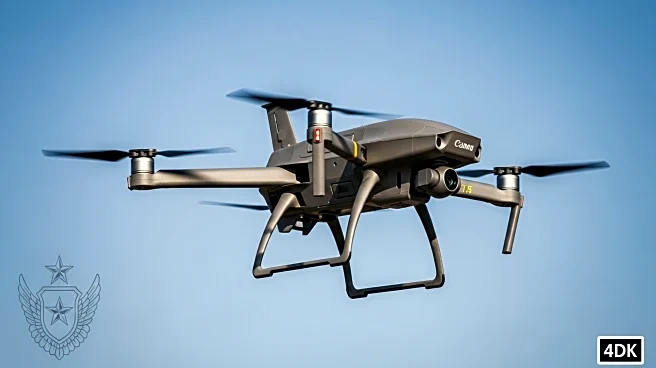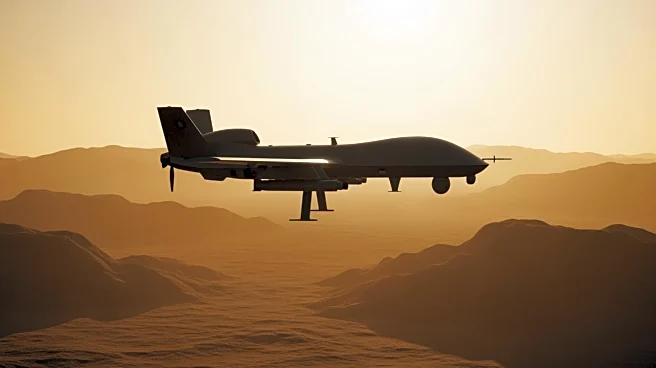What's Happening?
The Saudi Ministry of Defense has announced the graduation of the first Royal Saudi Air Force (RSAF) personnel trained to operate the Bayraktar Akıncı unmanned aerial vehicle (UAV). The ceremony took place at Baykar's facility in Çorlu, Turkey, on October 13. Attendees included RSAF Commander Lieutenant General Prince Turki bin Bandar bin Abdulaziz and Ibrahim bin Ahmed al-Suwayed, RSAF undersecretary for procurement and armament. A total of 76 enlisted RSAF personnel and 36 officers graduated, with some senior officers attending the ceremony without completing the course. This development follows Saudi Arabia's procurement of Akıncı UAVs, announced during a visit by Turkey's President Recep Tayyip Erdoğan in July 2023. The deal includes technology transfer for joint production in Saudi Arabia.
Why It's Important?
The graduation marks a significant step in Saudi Arabia's military capabilities, enhancing its aerial defense and surveillance operations. The acquisition and training on the Akıncı UAVs represent a strategic partnership between Saudi Arabia and Turkey, potentially influencing regional defense dynamics. The technology transfer aspect of the deal suggests a long-term collaboration, allowing Saudi Arabia to develop its own UAV production capabilities. This move could bolster Saudi Arabia's defense industry, reduce dependency on foreign military technology, and increase its influence in regional security matters.
What's Next?
Saudi Arabia is expected to continue its collaboration with Turkey, focusing on the joint production of Akıncı UAVs. The RSAF personnel who have completed their training will likely begin operational deployment, enhancing Saudi Arabia's surveillance and defense capabilities. Further deliveries of the UAVs are anticipated, although no specific timeline has been confirmed. The partnership may lead to additional defense contracts and collaborations between the two nations, potentially impacting regional military alliances and strategies.
Beyond the Headlines
The training and acquisition of advanced UAV technology by Saudi Arabia could have broader implications for regional security and defense policies. It may prompt neighboring countries to reassess their own military capabilities and alliances. The technology transfer aspect of the deal highlights a shift towards self-reliance in defense production, which could influence Saudi Arabia's future procurement strategies and its role in the global defense market.










